Merida Reacto DA LTD review
The Merida Reacto DA LTD is a fast looking bike with the potential for both high straight line speed and KOM records; we've tested it to see if the results are as obvious as you'd think.
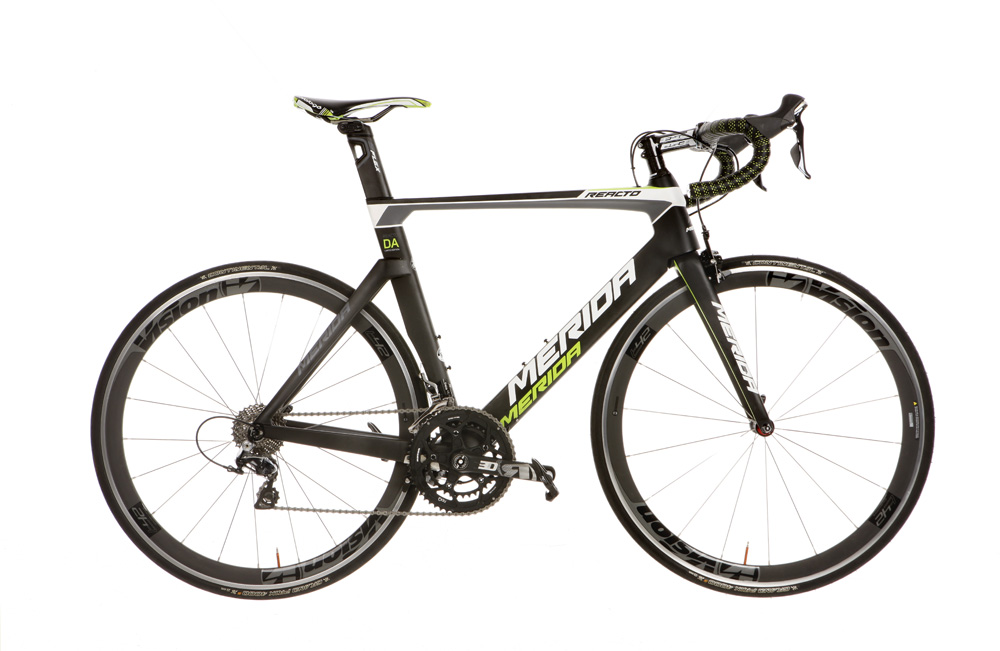
Overall the Merida Reacto DA LTD is a fast looking, and fast acting bike. When given a good push, it flies, and it does so in relative comfort. If the story ended there, we'd be looking at a bike hitting near top scores in our test, but sadly the bike has a couple of flaws worth mentioning. The poor brakes were a real issue for me, and although they work, they're simply not good enough for a bike costing this much money; they really needed to be excellent. And the ride, which may suit some people thanks to its cosseting effects and general predictability, just wasn't as exciting as it should be.
-
+
Super fast and stiff
-
+
Sleek looks
-
+
Generally good spec and finishing kit
-
+
Great choice of wheels and tyres
-
-
Poor brakes
-
-
Ride feels numb
-
-
Jittery front end
You can trust Cycling Weekly.
This £3,500 Merida Reacto DA LTD is the the most expensive non-pro version available. The bike World Tour team Lampre-Merida are currently using is known as the ‘Team-E’, and it costs twice as much, an eye-watering £7,000. On the whole it looks identical, other than a spray of team colours and some upgraded parts, of course. As it is — this DA LTD version could be all the race bike a mere mortal will ever need.
Shimano Dura-Ace groupset; Rotor 3D cranks with a sensible 52-36 setup; Vision Trimax T42 wheelset and a lot of carbon fibre finishing kit. What more could you reasonably want? Other than Dura-Ace brakes, perhaps. But we’ll come back to that later…
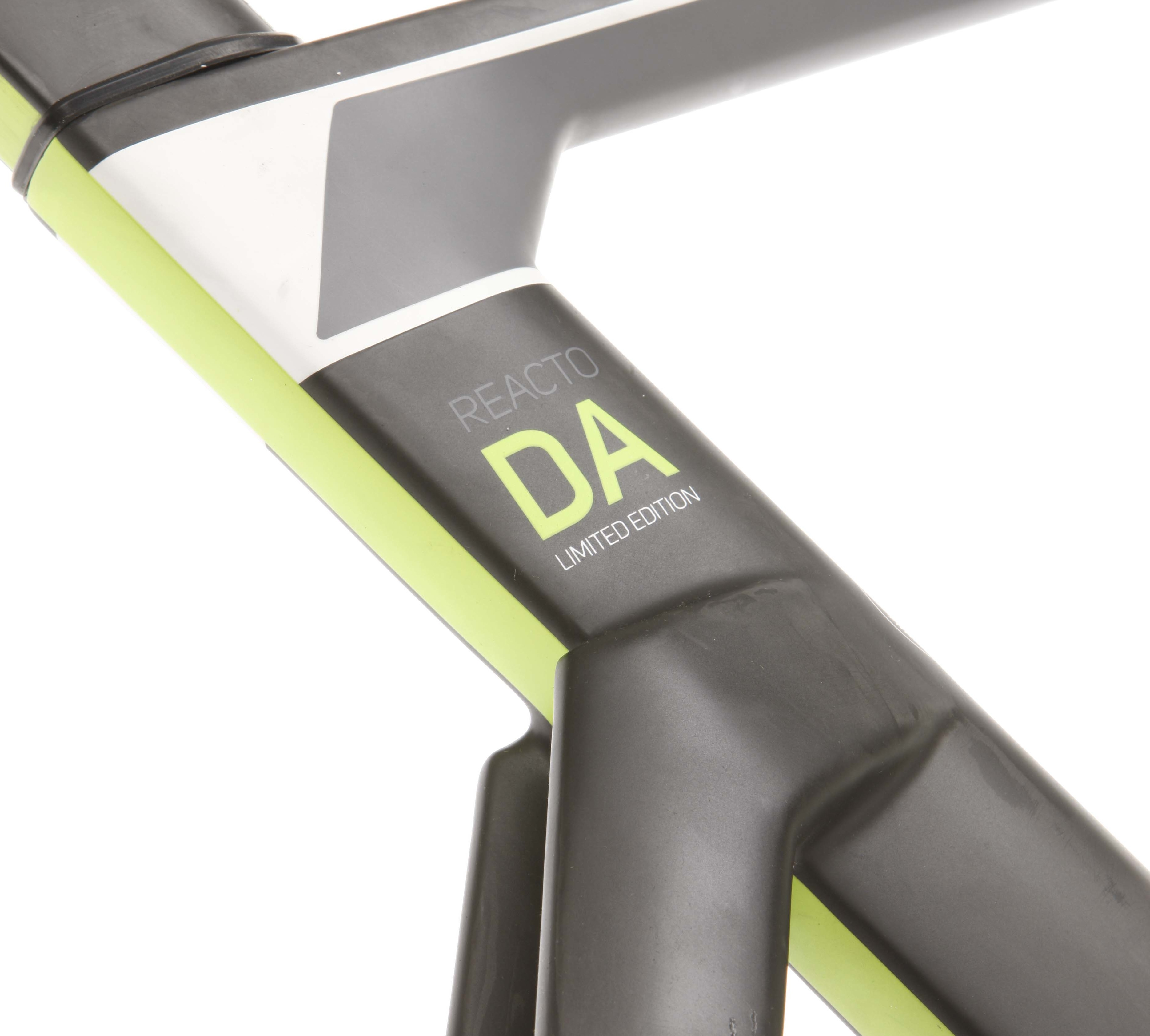
The frame set is particularly angular, and you'll have probably decided whether you like the look of it or not already. If you're in the market for an 'aero' bike, this is the look you're going to have to learn to love, because Merida aren't the first to do it, and they won't be the last.
The fork follows the same styling cues, although it's skinnier than we expected. It's stiff enough though, with no determinable flex under power, and there were no concerns with comfort, as the feedback provided by the front end was enough to be informative, but nothing more.
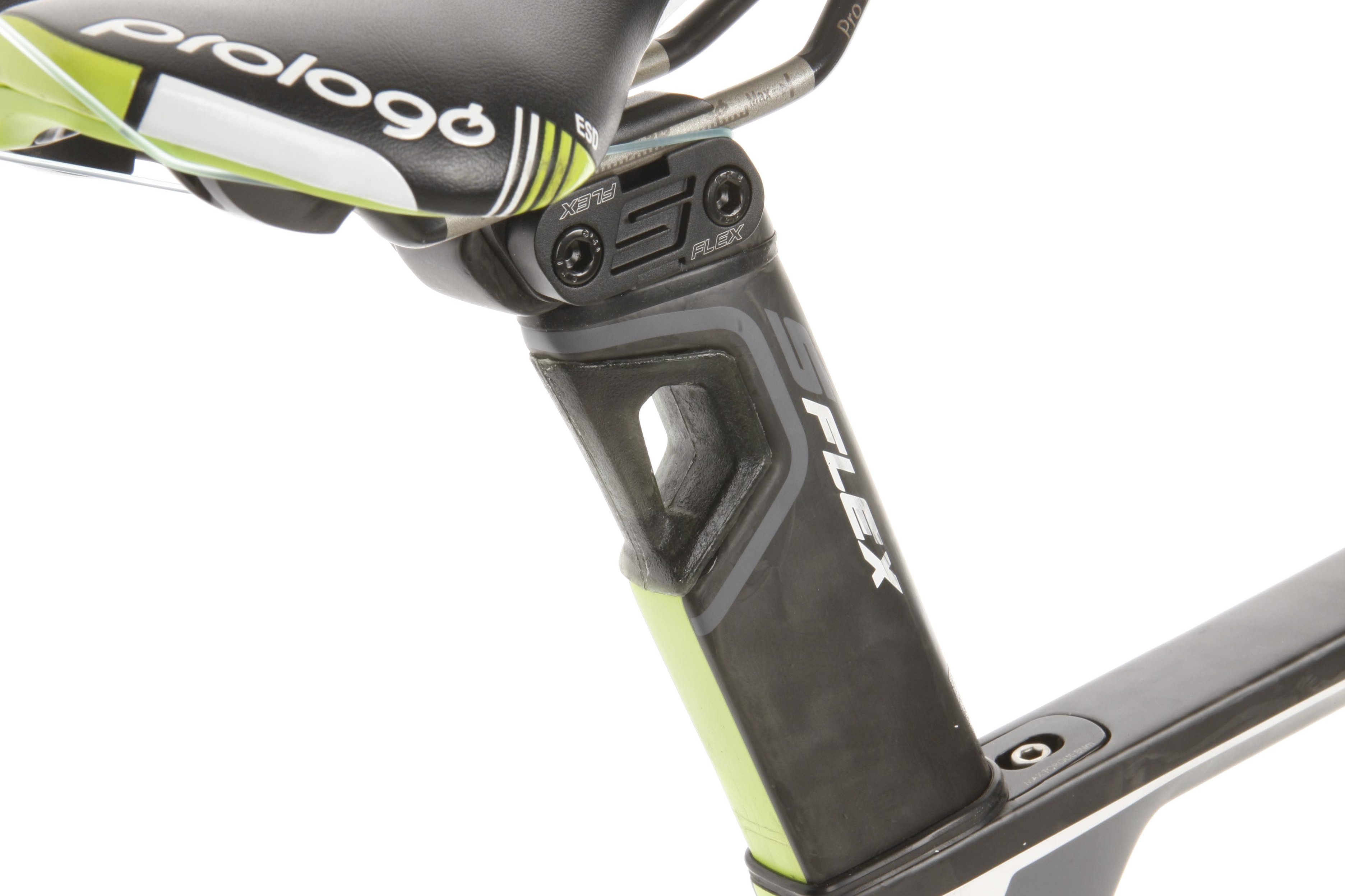
With bike design progressing at an astonishing rate, it can sometimes be difficult to tell the difference between design lead aesthetic features, and engineering genius, without a doctorate in physics. The seatpost on this Merida is a case in point.
Merida calls it “S-Flex” technology. It’s essentially an elastomer sat in a notch in the seat post – you can feel its softness if you give it a good poke. In reality, the rubber insert doesn’t do a lot; the real trick is where the seatpost thins (much like with Specialized's 'Zertz' inserts technology). Big fat aero posts aren’t known for their comfort, so by transferring the road buzz through a narrower section of seatpost, it enables the post to flex much more than normal.
As far as aero bikes go, the Reacto feels comfortable enough beneath you - we've had better, and we've had worse - but whether we can attribute that soley to the S-Flex seat post isn't clear. What is clear is that when forced, you can see the flex, as subtle as it is. Heavier riders will feel it more directly under stress, when cornering, but lightweights, like me, will just have to trust that it's doing something.
The latest race content, interviews, features, reviews and expert buying guides, direct to your inbox!
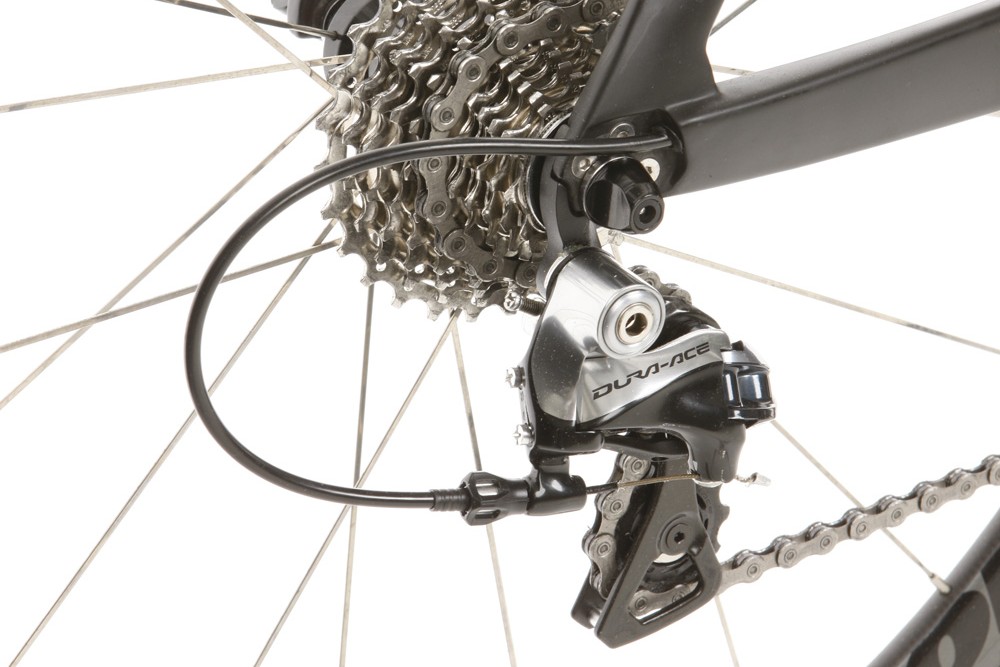
The groupset provided is a mix of Shimano's own Dura-Ace (cassette, derailleurs and shifters) and with a Rotor 3D chain set, and Tektro brakes. As always, the Shimano parts are excellent. The chainset is an upgrade over the standard Dura-Ace setup though. Or at least it should be on paper. The Rotor 3D chainset costs more new, and weighs in at at least 100g lighter, but the shifting isn't as sweet as it is with Shimano's own.
The wheel set comes courtesy of American brand Vision. Weighing in at 1,720g for a pair, they're in the ballpark for a set of carbon/alloy rims. A set will cost you £699 off the shelves, so they're not budget inclusion, but they're not as stiff as we'd like. A lot of wheels would struggle to stay straight under the stiffness of the Reacto though, which highlights the issue more so at the back end with that compact rear triangle.
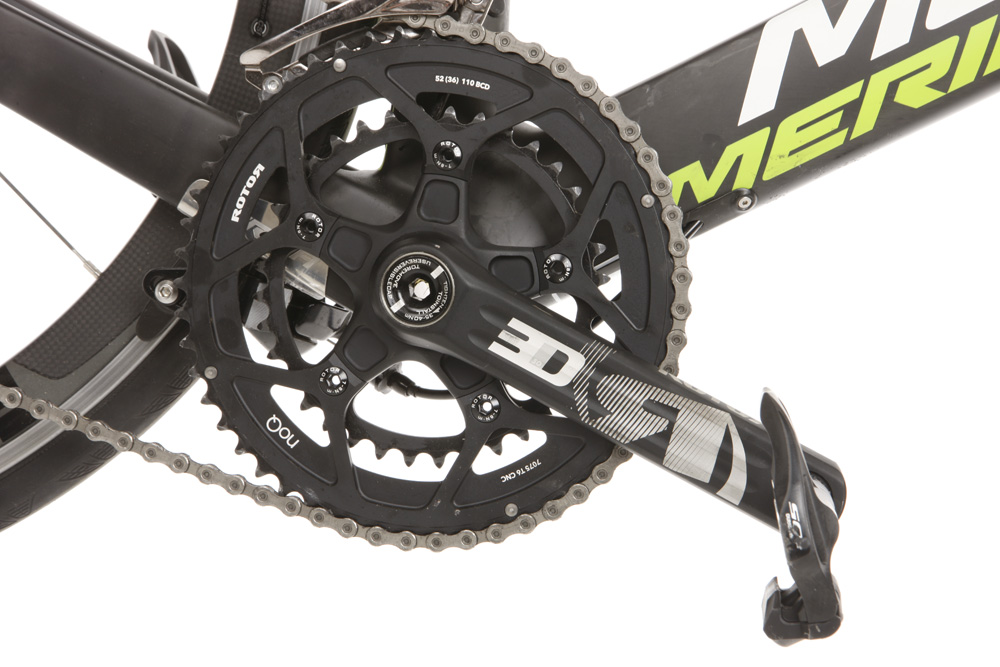
The wheels are fairly quick though. The depth was right for mixed conditions, and they handled crosswinds rather well, so it's swings and roundabouts. The alloy rim provided reliable stopping potential, and the tyres, a pair of Continentals ever excellent GP4000s didn't let the side down.
Unlike a couple of recent aero bikes we’ve seen, the Canyon Aeroad and the Azione Questo II, the Merida Reacto DA LTD has a hidden rear brake. A direct-mounted Tektro caliper sits underneath the rear chainstays. It’s an obvious aero-looking upgrade (although the actual benefits are constantly debated), and it makes the whole rear end look very, very fast.
A Tektro branded item, on a bike costing £3,500, is the only anomaly on the spec sheet. We left brand preference at the door though, and judged them objectively while out on test. And? Well, to be honest, they weren't very good. They lacked feel, and the stopping power was weak.
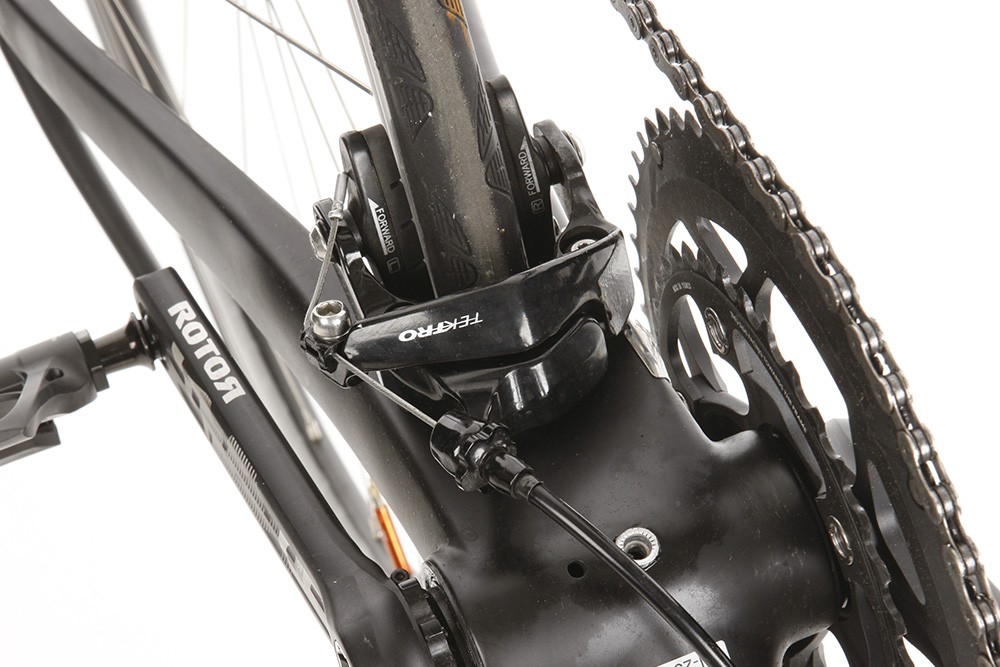
The direct mount aids stiffness, and in theory should help the modulation and control, but they paled in comparison to the aforementioned Team-E's Shimano Dura-Ace stoppers when tested side-by-side. Loosening off the cables so we could get hold of more of the lever helped us out a little, and we'd recommend that as your first fettle before taking the DA LTD out for a spin.
There's a lot of nice finishing kit on the bike, most notably a carbon stem and handlebar, by FSA. Merida has even gone as far as fitting carbon headset spacers, which is a very rare occurrence, and a nice touch. Saving a little weight around the cockpit area brings the overall weight in at 8.15kg, but I'd question the motives of saving a few hundred grams on a bike that would benefit more if the money was spent on upgrading the stoppers.
When it comes to the overall ride experience, we've got mixed opinions. It's definitely fast, and it's very stiff, but the bike isn't as attacking focused as we first assumed it would be. The bike can certainly pick up speed, and hold it easily, but it just feels a bit numb throughout the whole experience.
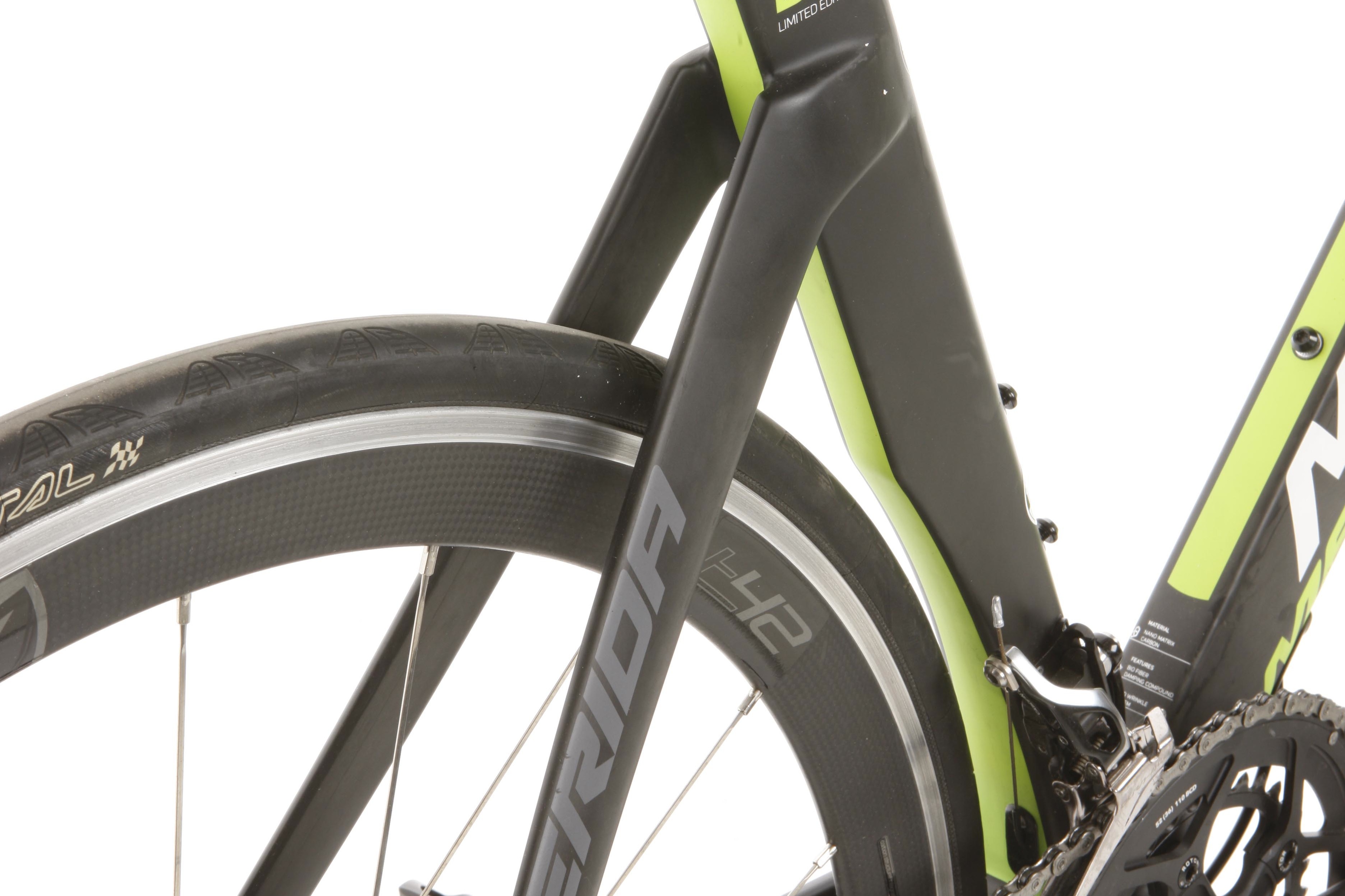
That's not to say it's a boring bike though. There's an air of unpredictability about it, which surfaces at speed. It's a bike that's not content to ride in a direct straight line, and it's easily noticeable if you try (but fail) your best to follow a white line of road paint.
That constant movement requires concentration, especially if you want to push the bike to the absolute limit, but climbing and cornering are reliable and predictable, so it's not a huge concern.
At £7,000, the next model up, the identical looking Team-E version, is a totally different experience. It's got a keenness to it, and it wants to attack. Not only that, it wants you to push it faster and faster, and that's the experience I was hoping for with the DA LTD version we tested. It can handle speed, but for me, its just lacking a little excitement for day-to-day riding.
We're testing the Team E version after this bike, so keep your eyes peeled to see what £7,000 buys you.
For more details visit the Merida website.